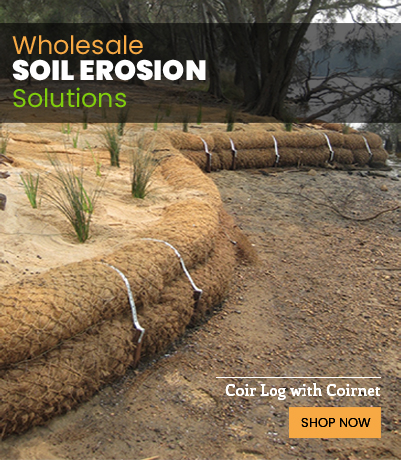Many of today’s consumers shop with sustainability in mind, choosing environmentally friendly products when available. People are cutting down on their use of plastic, not only due to its potential health risks but also because of its effects on the environment. Historically, many pots and planters have been constructed of plastic, but plastic-free options such as coir pots present growers with a biodegradable and eco-friendly option for their gardens.
The Consequences of Using Plastic
Plastic products, while extremely durable, cheap, and lightweight, present a number of health and environmental risks. Most plastics contain compounds that can be harmful when they leach into groundwater and other water bodies. They might contain chemicals that are dangerous to human health. Because plastics take centuries to break down after being discarded, they continue to expose humans, animals, and the environment to these contaminants long-term.
Plastic’s nonbiodegradable nature also means these items can clog and pollute waterways and pile up in landfills. Today, billions of pounds of plastic are floating in our oceans, potentially killing or entrapping sea- and wildlife. Hence, developing and utilizing plastic-free goods have become critical for protecting the planet.
Why Go Plastic-Free?
Aside from the above-mentioned problems with plastics, there are many reasons to use plastic-free products. Less plastic in your home can lead to a more natural look and feel accented by wood, steel, and glass. Food, drinks, toys, and beauty products that aren’t made of or packaged in plastic mean there’s less risk of you ingesting or being exposed to harmful or carcinogenic chemicals. Knowing you’re doing your part to help the environment can also help boost your happiness level and overall morale.
Alternatives to Plastic
Common ways to use less plastic include shopping with reusable bags, using refillable containers such as glass water bottles, buying clothing made of natural fibers, buying in bulk to reduce waste, and seeking out eco-friendly materials such as coir and bamboo.
If you’re a recreational or professional gardener, one way to reduce your plastic use is to use biodegradable pots and planters in place of traditional plastic ones. Plastic-free containers include those made of straw, rice hull, peat moss, or coir — the hardy fibers from coconut husks. These pots break down naturally over time when planted or placed in their entirety in the ground. They might require different handling than plastic and might result in faster plant growth rates.
Coir pots are compostable, even within home compost piles. They are water-permeable, which helps to keep plants at a desirable moisture level and contributes to the pots’ natural breakdown. As the pots decompose, plant roots are able to work their way through the coir fibers, allowing for healthier growth. Impermeable plastic pots can crush and deform roots and inhibit their growth. Coir pots also make removing or repotting plants easy.
Replacing traditional plastic planters with organic, biodegradable coir pots can help you reduce your plastic use. Plastic-free products such as these are safer for human use, healthier for plant growth, and significantly better for the environment.

Leave a Reply
You must be logged in to post a comment.